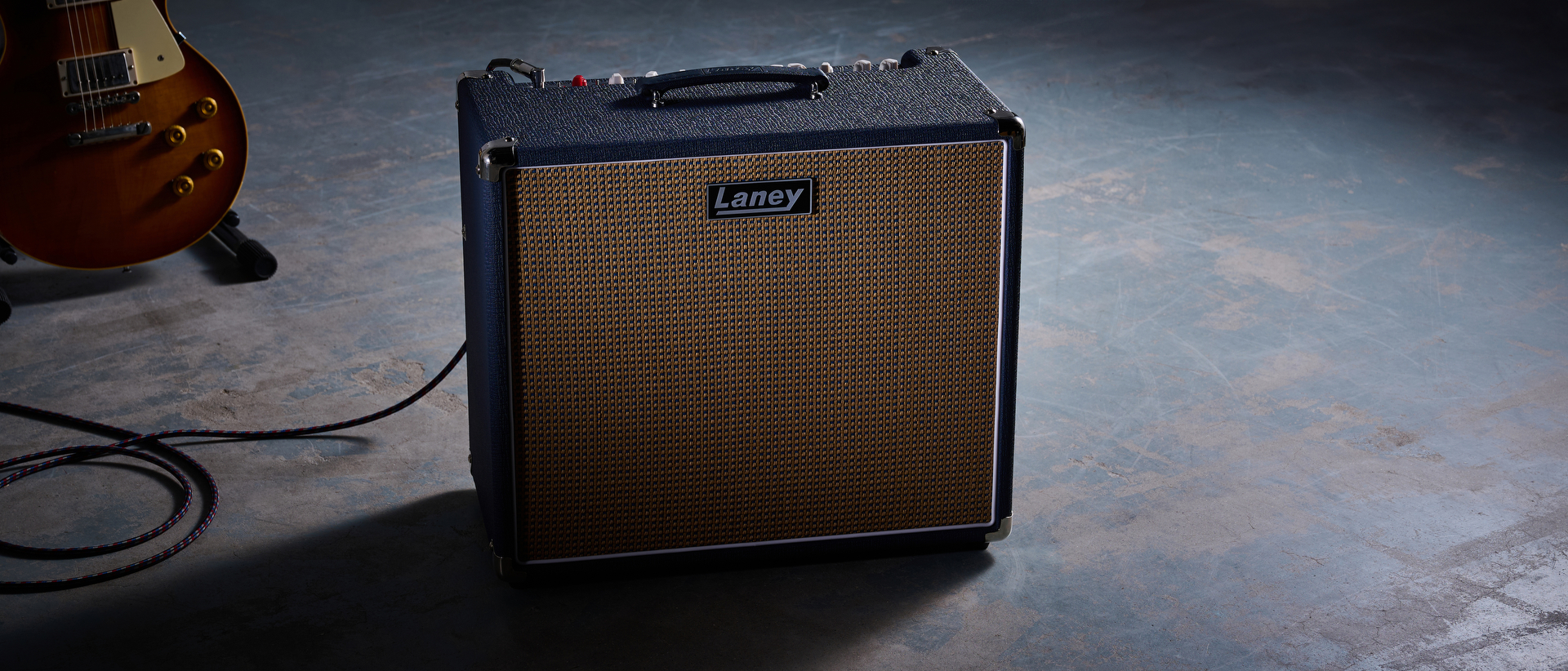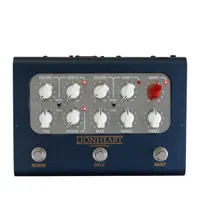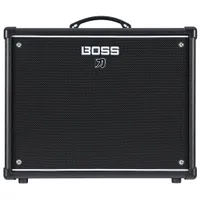MusicRadar Verdict
Affordable, user-friendly, and with all the tube-like saturation you could ever need, there isn’t a lot to dislike about the solid-state version of Laney’s beloved Lionheart. Sure, I’d prefer a dual set of EQ controls and a footswitch in the box wouldn’t go amiss, but those are small complaints for what is otherwise a brilliant little gigging amp.
Pros
- +
Classic British tones
- +
Lightweight
- +
Built-in boost is a handy addition
Cons
- -
I’d prefer a separate EQ for each channel
- -
The option to mute the speaker when DI-out is used would be useful
- -
No footswitch included
MusicRadar's got your back
What is it?
Since its establishment in 1967, Laney has been the choice of many renowned players, including the godfather of heavy metal, Tony Iommi, grunge icon Billy Corgan, and contemporary artists like Lari Basilio, Guthrie Govan, Martin Miller, and Phil X. These artists rely on Laney to deliver their signature tones - and now with the Laney Lionheart Foundry Super 60 112, it's just gotten easier to harness that famous Laney magic for yourself.
This 60-watt, dual-channel, solid-state 1x12 combo amp is on a mission to deliver the iconic tone of one of Laney’s most celebrated guitar amps in a lightweight, user-friendly package - all while delivering on that warm, rounded, and dynamic tube tone we all crave.
The creative brains behind Black Country Customs aren't looking to mimic myriad existing sounds, but instead they are interested in perfectly recreating one of the company's most famous amps by “mapping the complete all-tube topology” of the award-winning Lionheart. The goal? To capture the true essence of the amp, making you feel like you’re wielding a real tube amp.
Expect all the classic elements, such as the tone stack, EQ circuits, and gain stages, faithfully recreated with discrete analogue components, ensuring every nuance matches the original’s response characteristics.
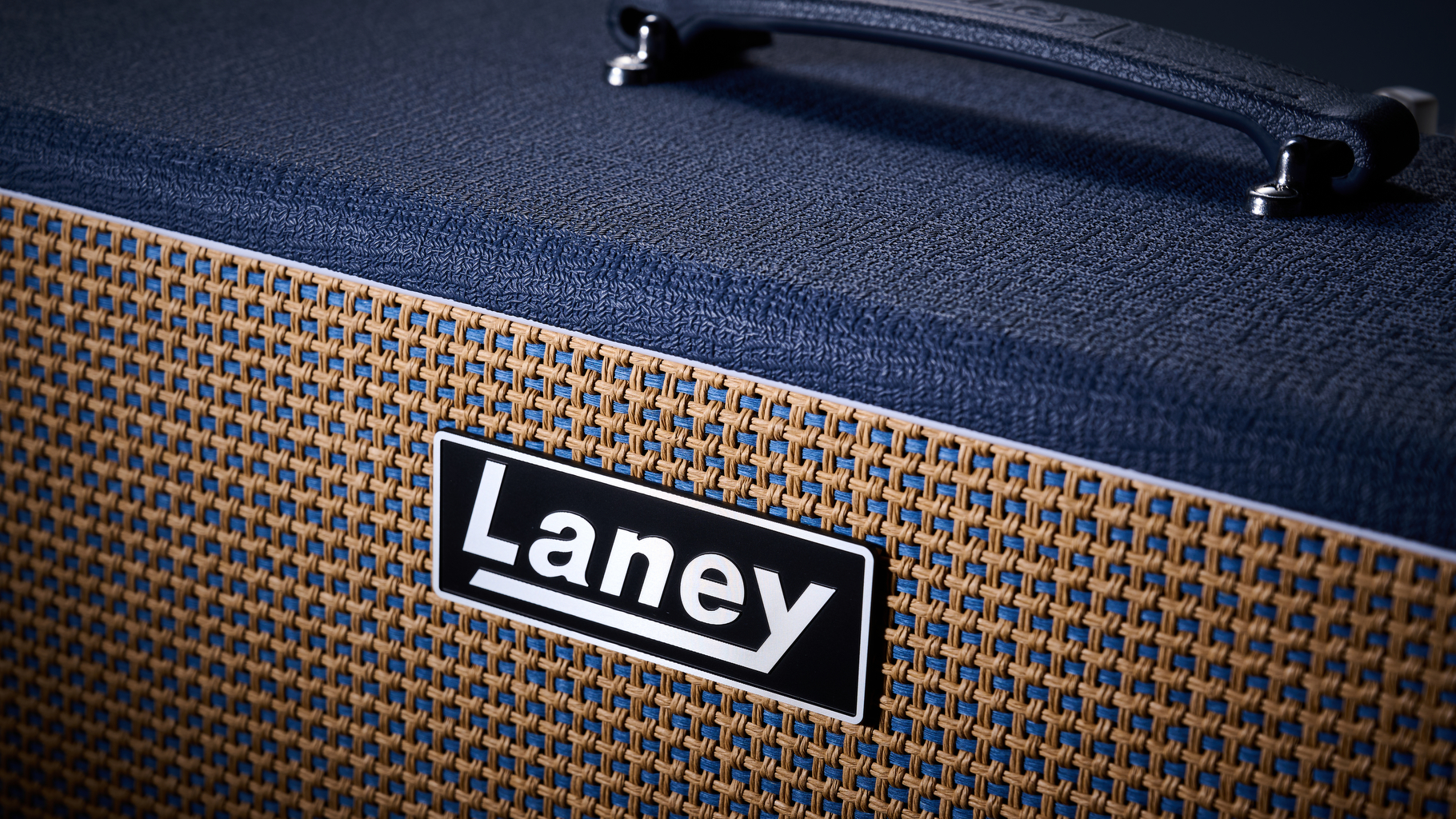
You’ll find 'verb derived from Laney’s Secret Path reverb pedal and a chorus effect lifted from the Spiral Array, famously used by none other than Andy Timmons. Channel switching, boost, reverb, and modulation effects can all be controlled via the rear sockets, although, spoiler alert: no footswitch is included. That said, the FS2-Mini footswitch is available to purchase separately, but it will set you back around £30.
For versatility, the amp features a wattage switch, letting you toggle between the full 60 watts for those big stage moments and a bedroom-friendly, less-than one watt for late-night jams. Plus, there’s a handy headphone mini-jack for complete stealth mode.
If you love to jam along with backing tracks, an external audio input jack has got you covered. And there's also an IR-based speaker-emulated XLR output, with a choice between 1x12 or 4x12 emulation, which is handy for both live and studio use.
Want all the hottest music and gear news, reviews, deals, features and more, direct to your inbox? Sign up here.
On paper, this new Lionheart certainly has a lot going for it, but how well does it stack up against the high bar set by the tube version, and can a solid-state amp really feel like you are playing through tubes? Well, let's find out.
Specs
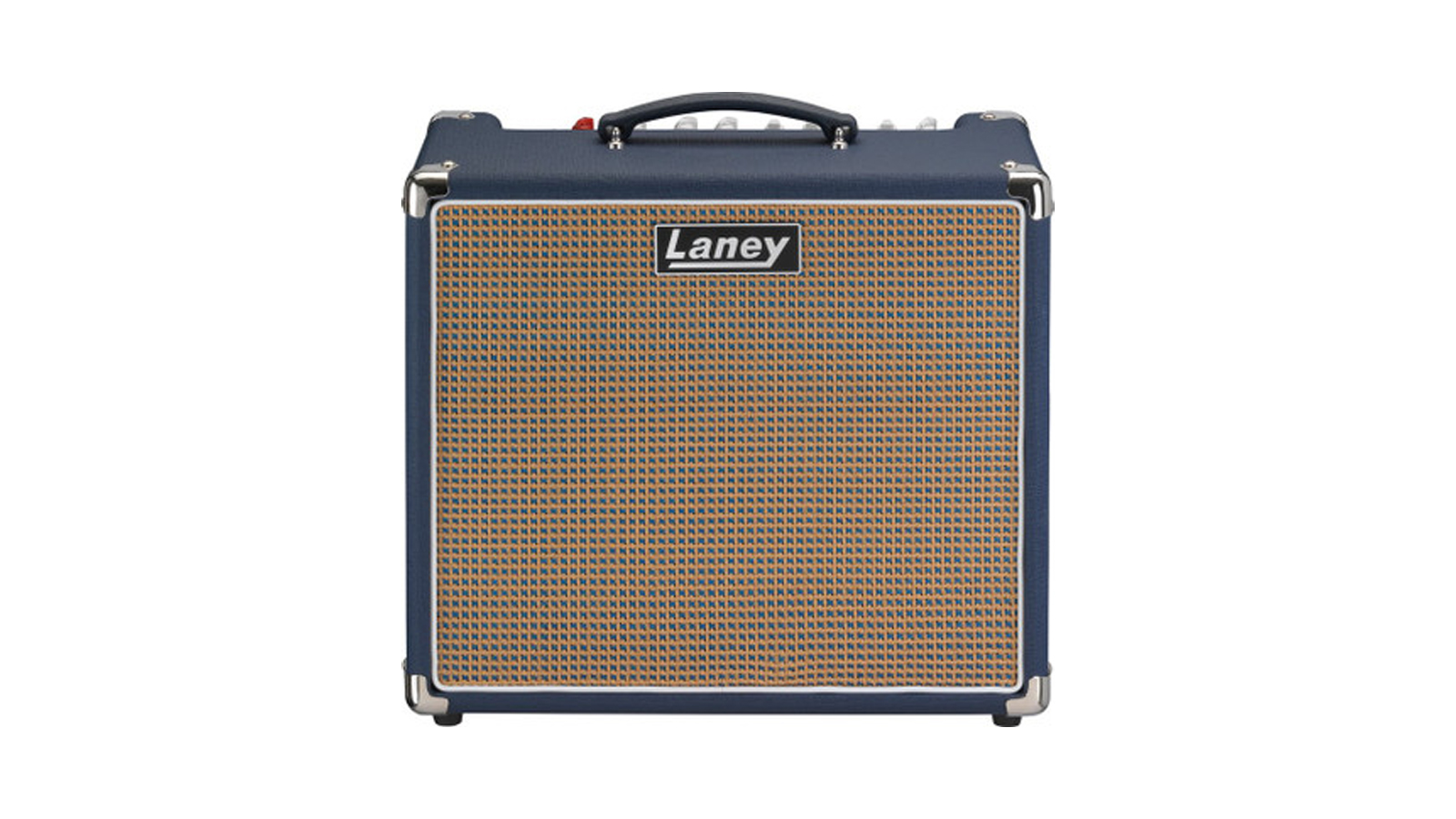
- Launch price: $549/£349
- Type: Solid-state combo
- Origin: China
- Output: 60-watts
- Speaker: 12", HH Acoustics HH1260
- Channels: Two-channel with a boost
- Controls: Boost w/on/off switch, Ch1 Clean Volume w/Bright switch, Ch1/Ch2 toggle switch, Lead Gain, Lead Volume, Bright/Dark switch, Bass, Middle, Treble, Tone, Reverb, Tremolo/Chorus switch, Effects Rate and Depth
- Connectivity: 1/4" input, Balanced XLR IR-output, headphones output, aux-in, effects loop, footswitch input
- Footswitch: Laney FS2-Mini, sold separately
- Weight: 25.4lbs/11.52kgs
- Dimensions: 485x447x259mm
- Contact: Laney Amplification
Build quality
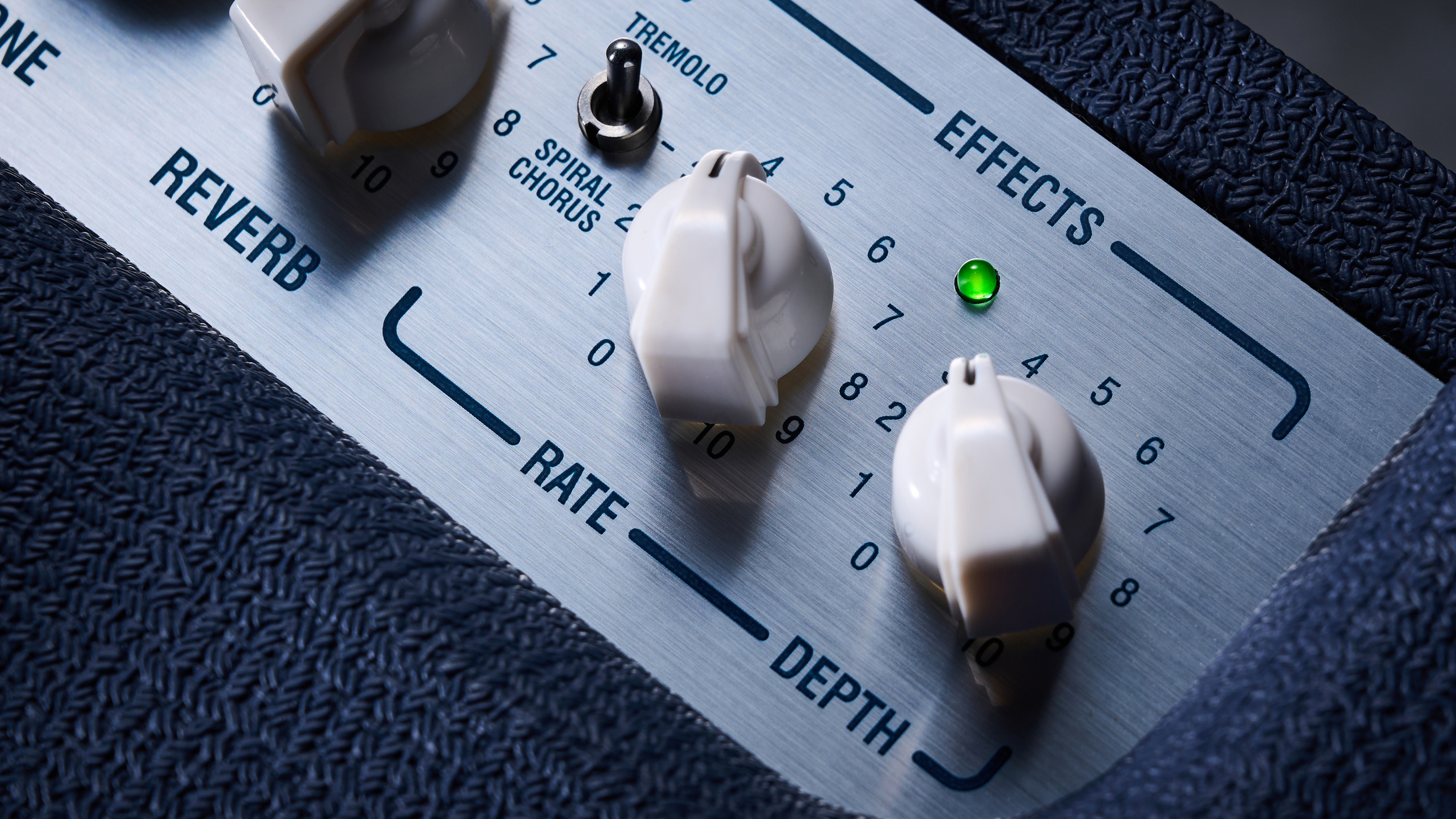
Build quality rating: ★★★★★
With this amp sitting behind me on stage, there’s no way the audience would be able to tell that it's not the full-fat tube version
All of this goodness comes wrapped in a stylish blue and fawn colour scheme, complete with retro-inspired chickenhead knobs and a gleaming silver control plate. It’s hard not to admire how closely it resembles its tube-based cousin!
I’ve always been pretty captivated by the classy aesthetic of Laney’s Lionheart series, and the new version is no exception. It embodies a vintage charm that feels like it belongs in the '60s, standing proudly next to classic models from Supro or Watkins.
It’s refreshing to see Laney maintain that stylish element, ensuring that even in its solid-state form, the Foundry Super 60 112 looks every bit as timeless as its tube predecessor.
With this amp sitting behind me on stage, there’s no way the audience would be able to tell that it's not the full-fat tube version. That is, until you lift the thing. With none of the tube components weighing it down, this amp comes in at a back-saving 9.4kg, making the Foundry Super 60 112 a dream for musicians like me, who are often exhausted from hauling hefty combos up multiple flights of stairs at local venues.
Despite its lightweight build, the Laney Lionheart Foundry Super 60 112 certainly doesn’t compromise on quality. It feels robust and durable, and I fully expect it to stand up to the rigors of life on the road. There are metal protectors on all corners to ensure it stays looking classy - even when your drummer knocks it on all the doors on the way out of the venue, and the hand feels suitably secure.
The controls are smooth and responsive, well labelled, and neatly laid out, making adjustments during performances a breeze.
Usability
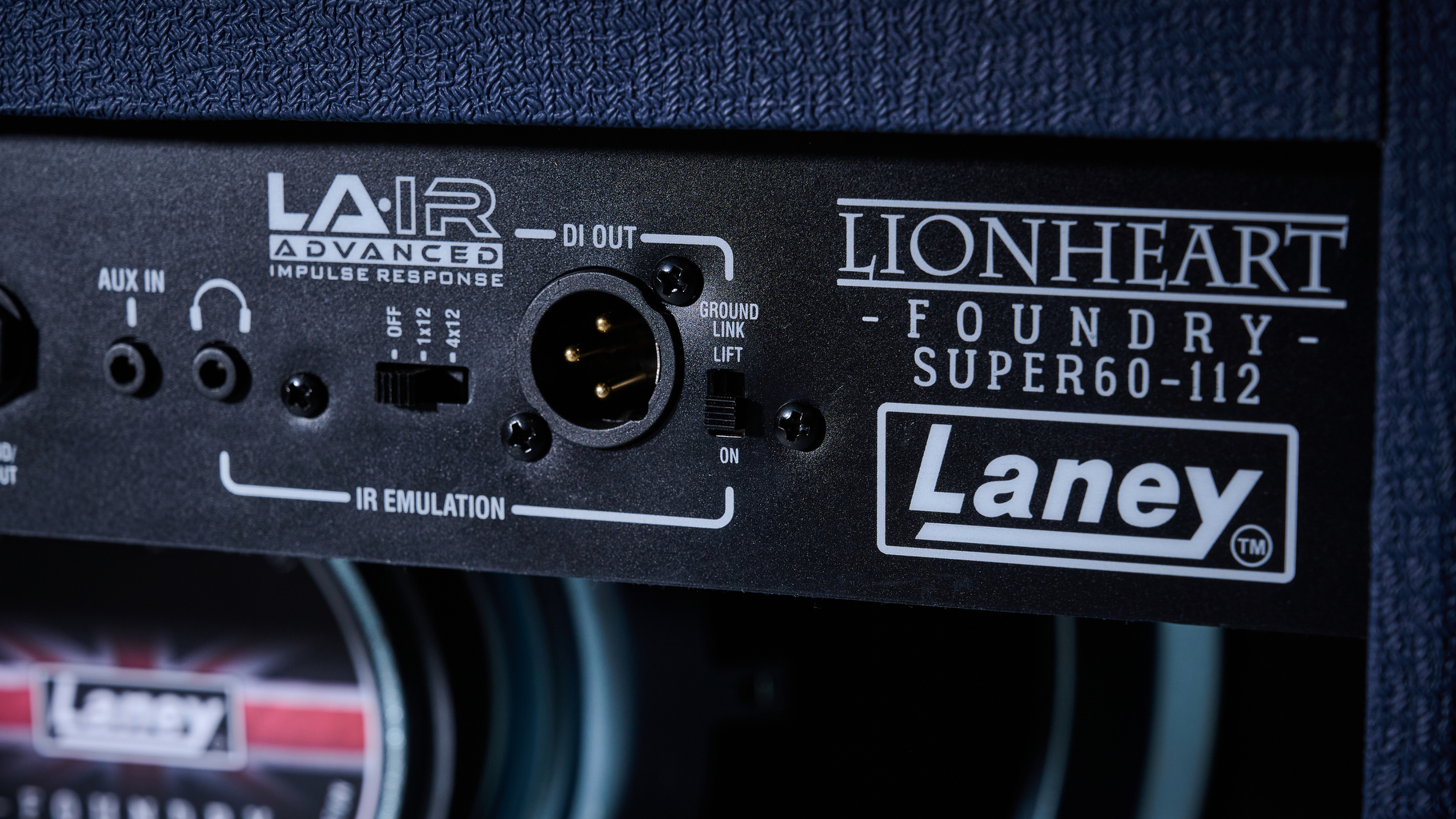
Usability rating: ★★★★½
To its credit, the Laney Lionheart Foundry Super 60 112 is a refreshingly straightforward amp. In a world filled with space-age digital modellers that boast more switches than the cockpit of the Nostromo, it’s a breath of fresh air to encounter an amp that allows you to achieve a usable tone in mere seconds.
With just a twist of a knob or a flick of a switch, you can smoothly transition between delicate cleans and gritty overdrive; it's just a pity the footswitch doesn't come with the amp as standard. That said, the responsive tone controls ensure that you can shape your sound exactly as you hear it in your head, without the hassle of complicated settings or deep dives into menus.
Just bear in mind that the EQ is shared between the two channels. Okay, it's not uncommon for affordable amps, or even vintage amps for that matter, but it's worth pointing out, in case you like wildly different tones between your clean and dirty sounds.
Flipping the amp around reveals a handy DI out on the rear, which is perfect for recording sessions or sending a clean signal to the front-of-house engineer during gigs. This feature is particularly valuable in a live setting, where a pristine sound can make all the difference. I especially appreciate the option to choose between 1x12 or 4x12 cabinet emulation, allowing for greater flexibility depending on the venue size or recording conditions.
However, a noteworthy omission is the lack of a mute switch for the speaker, which would be incredibly useful for home recording. Being able to monitor my performance silently would help keep noise complaints at bay; I get enough of them as it is!
Yes, I understand that this feature is primarily designed for live use, and it's understandable that the speaker remains functional for monitoring on stage, but a switch on the rear to mute and unmute the speaker would be very handy, indeed. Of course, you can always plug a pair of headphones in to get around this problem.
Sounds
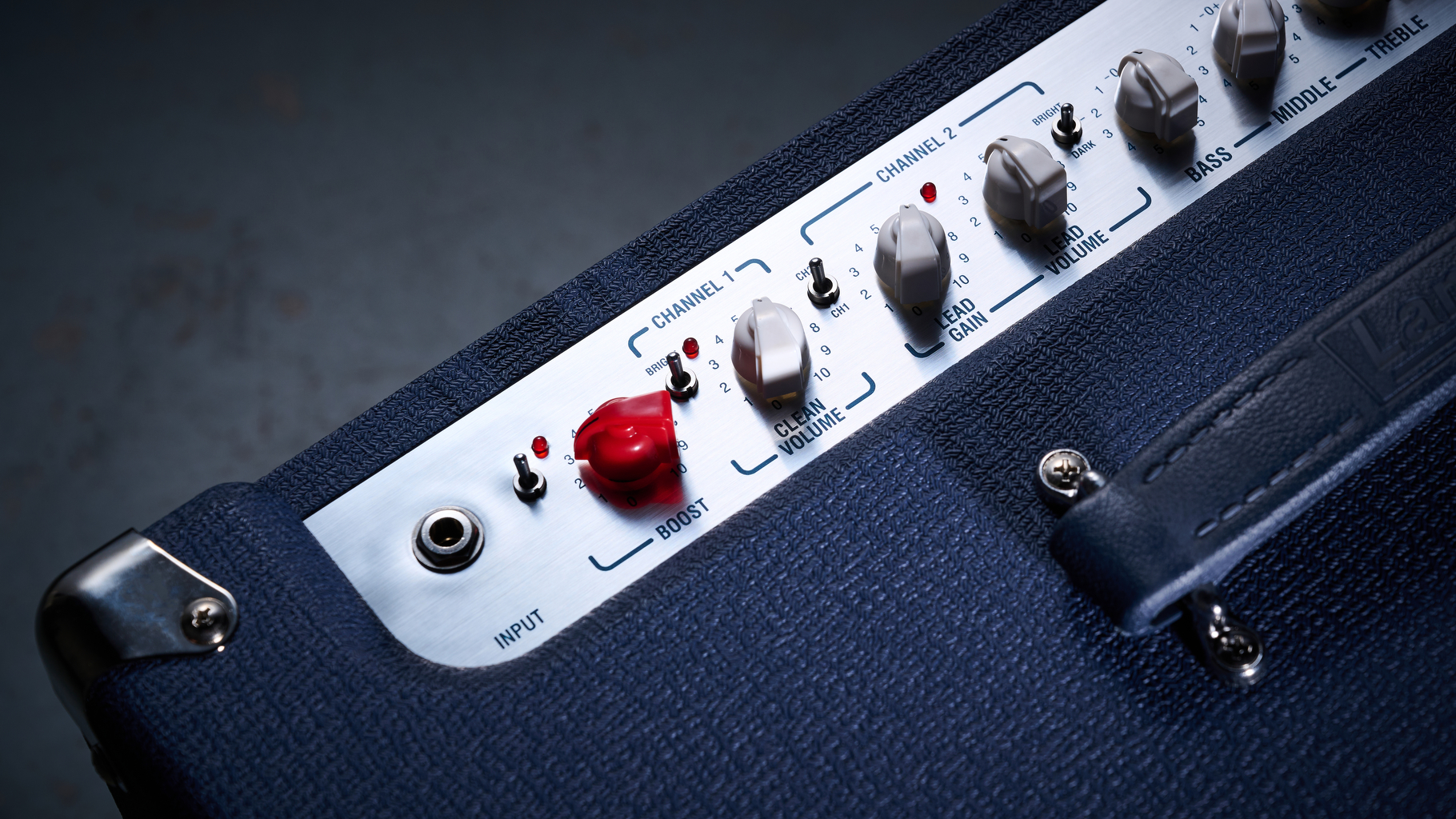
Sounds rating: ★★★★½
This channel delivers a smooth, natural overdrive that’s undeniably British in its makeup
Okay, let's not beat around the bush. This amp sounds fantastic and certainly speaks with a tube-like voice. If the Iommi-favoured Ironheart is for searing, cutting heavy metal tones, then the Lionheart delivers a healthy dose of classic rock grit with plenty of roar when you push the gain.
Starting with Channel 1, paired with my trusty Gibson Firebird, this amp delivers a bright, bell-like tone with nice, detailed high frequencies. For me, it feels reminiscent of the legendary Marshall JTM45 mixed with the chime of a Vox AC-30. The cleans are crystal clear and glassy, especially when you dial up the treble, but a little tweak on the bass control offers a comforting warmth often found on retro tube amps.
Now, let’s jump to Channel 2, where things get beautifully gritty. This channel delivers a smooth, natural overdrive that’s undeniably British in its makeup. Playing through this channel conjures images of iconic Marshall and Orange amps. There’s something incredibly satisfying about playing through this amp, especially when the gain just tips past the halfway mark.
I also like how tame the low-end is, possibly due to the combination of the HH Acoustics 1x12 speaker and solid-state power amp. I have a tendency to roll off the low frequencies when performing live, so the controlled bass response is a pleasant surprise. It feels just right, without the heavy thumping that can sometimes drown out clarity. Of course, if you're the type of player who loves a pronounced bottom-end that shakes the rafters, you might find this EQ curve a tad less satisfying - perhaps the 212 version might be more up your street.
Now, I think Laney has truly nailed the essence of a tube amp with the Lionheart. It's dynamic and responsive, mirroring how a classic tube amp reacts to your volume adjustments. Play softly, and you’ll hear it clean up beautifully, dig in harder, and it roars back with authority.
Verdict
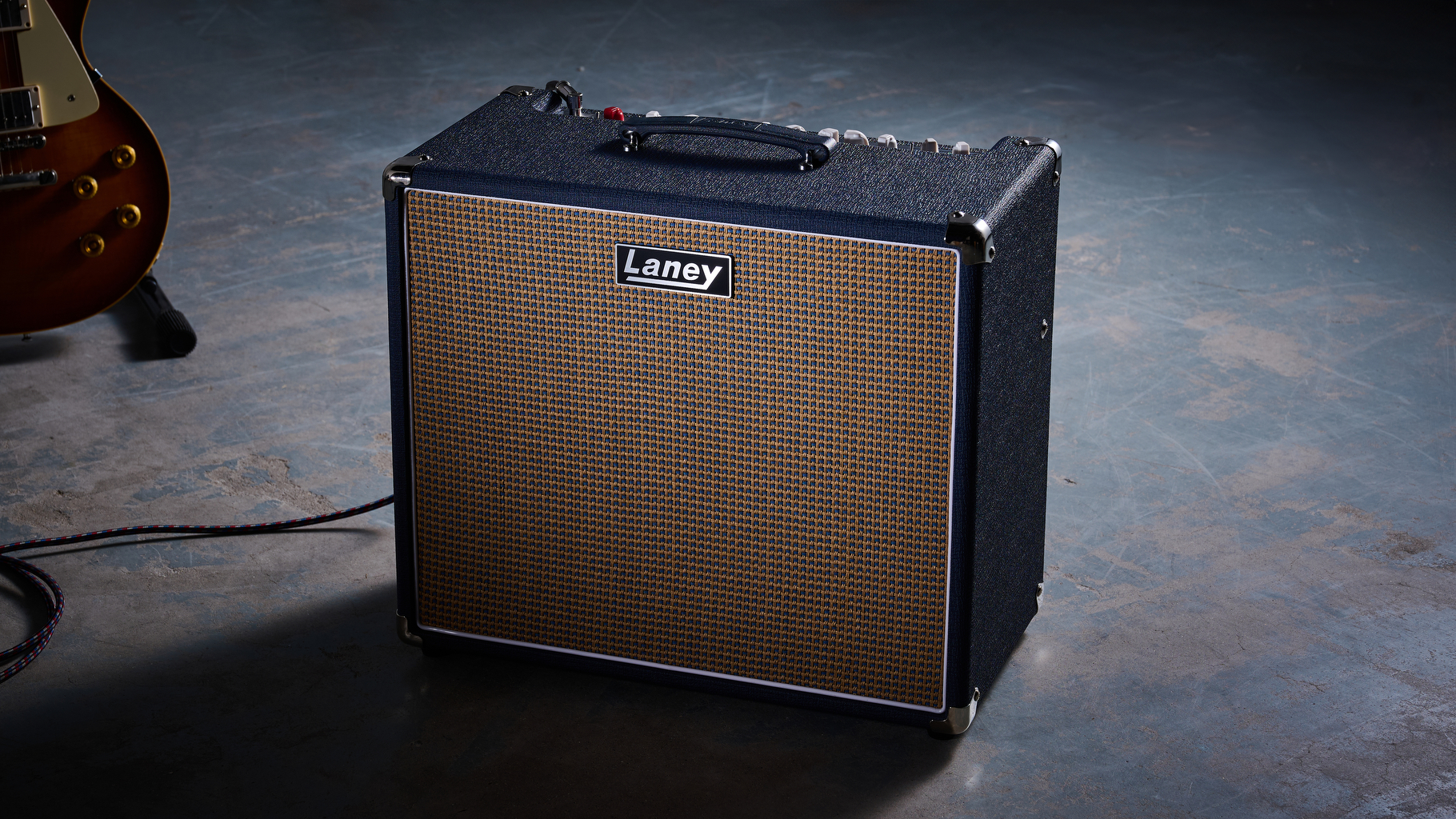
Many amplifiers claim to replicate the feel and dynamism of tube amps, but few do it as simply and effectively as the Laney Lionheart Foundry Super 60 112.
It reminds me of Fender's approach with the Tone Master series. Bells and whistles are kept to a minimum in the pursuit of simple tones, delivering exactly what players are looking for from an amp bearing a certain name.
If I were to be super critical, I would appreciate a dedicated solution for muting the speaker when using the DI out so the amp could thrive in the studio as much as it does in a live environment, and having a separate EQ section for the clean and dirty channels would enhance this sonic versatility. That said, as it is, this is a fantastic amp that's stylish, very user-friendly, and sounds amazing.
MusicRadar verdict: Affordable, user-friendly, and with all the tube-like saturation you could ever need, there isn’t a lot to dislike about the solid-state version of Laney’s beloved Lionheart. Sure, I’d prefer a dual set of EQ controls and a footswitch in the box wouldn’t go amiss, but those are small complaints for what is otherwise a brilliant little gigging amp.
Test | Results | Score |
|---|---|---|
Build quality | Well made and solidly built perfect for live use. | ★★★★★ |
Usability | Very user-friendly and easy to use, but I'd prefer EQ controls for each channel. | ★★★★½ |
Sounds | Great tube-like tone and feel. | ★★★★½ |
Overall | This is a fantastic amp that proves you don't need to spend a fortune to get tube-like tones. | ★★★★½ |
Also try
Laney BCC Lionheart Loudpedal £400/€449/$499
Need an even more portable option? Well, the Laney BCC Lionheart Loudpedal has the looks, the feel, and - most importantly - the sound to rival its tube-powered namesake, all in a compact, road-ready package.
Read more: Laney Lionheart Loudpedal review
Boss Katana 50 Gen 3
$349/£249/€285
Want more in the way of effects? Well, the Katana gives you access to myriad Boss stompboxes at an affordable and accessible price.
Read more: Boss Katana Gen 3 review
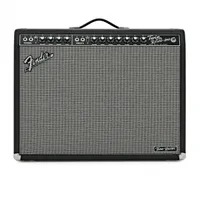
Fender Tone Master Twin Reverb £999/$999/€999
Looking for that famous Fender clean tone with the back-breaking weight? Well, the Tone Master Deluxe Reverb is for you!
Hands-on videos
Laney Amplification
PMTVUK

Andertons Music Co

I'm a Senior Deals Writer at MusicRadar, and I'm responsible for writing and maintaining buyer's guides on the site. As part of my role, I also scour the internet for the best deals I can find on gear and get hands-on with the products for reviews. My gear reviews have been published in prominent publications, including Total Guitar, Guitarist, and Future Music, as well as Guitar World.com. I've also had the privilege of interviewing everyone from Slash to Yungblud, as well as members of Sum 41, Foo Fighters, The Offspring, and many more.
In a previous life, I worked in music retail, selling everything from digital pianos to electric guitars. I'm also a fully qualified sound engineer who holds a first-class Bachelor's degree in Creative Sound Production from the University of Abertay.
You must confirm your public display name before commenting
Please logout and then login again, you will then be prompted to enter your display name.
